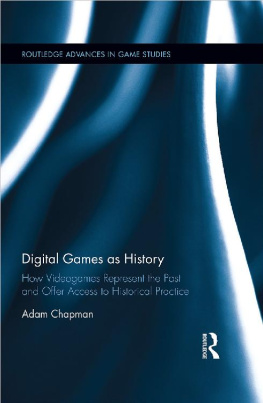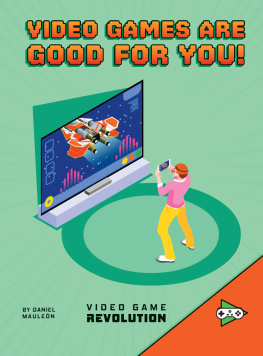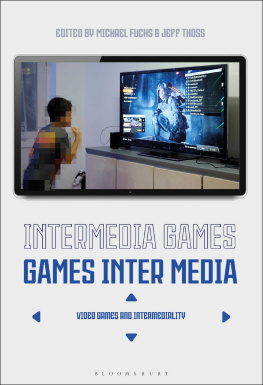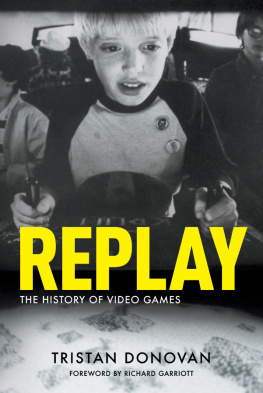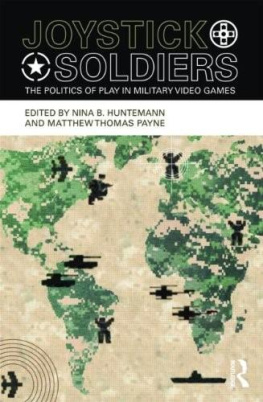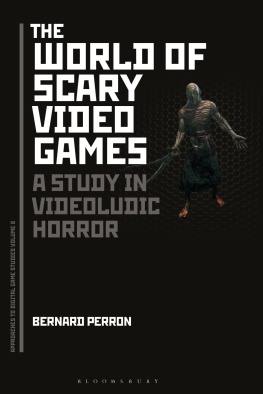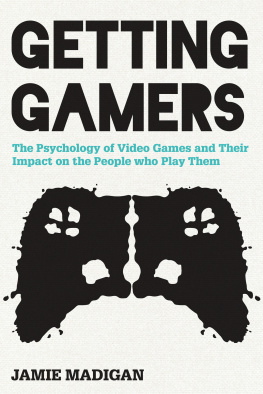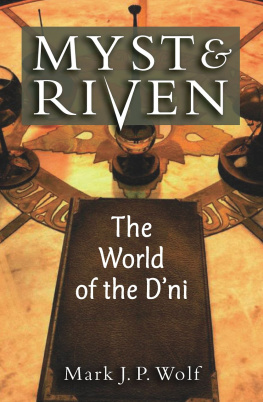Digital Games as History
This is a timely and important study of the ways in which video games can and do use history, and the ways in which a hugely successful modern medium can connect players with the past. Chapman is part of a new generation of scholars trained in interdisciplinary research and able to transcend disciplinary lines to answer provocative research questions. This book is highly recommended both to historians and games studies enthusiasts.
Andrew Elliott, University of Lincoln, UK
This book provides the first in-depth exploration of video games as history. Chapman puts forth five basic categories of analysis for understanding historical video games: simulation and epistemology, time, space, narrative, and affordances. Through these methods of analysis he explores what these games offer as a new form of history and how they produce representations of the past. By taking an inter-disciplinary and accessible approach, the book provides a specific and firm first foundation upon which to build further examination of the potential of video games as a historical form.
Adam Chapman is a Post-Doctoral Fellow in Education and Historical Game Studies in the Department of Education, Communication and Learning at the University of Gothenburg, Sweden.
Routledge Advances in Game Studies
1 Video Games and Social Competence
Rachel Kowert
2 Sexuality in Role-Playing Games
Ashley ML Brown
3 Gender, Age, and Digital Games in the Domestic Context
Alison Harvey
4 The Dark Side of Game Play
Controversial Issues in Playful Environments
Edited by Torill Elvira Mortensen, Jonas Linderoth, and Ashley ML Brown
5 Understanding Counterplay in Video Games
Alan F. Meades
6 Video Game Policy
Production, Distribution, and Consumption
Edited by Steven Conway and Jennifer deWinter
7 Digital Games as History
How Videogames Represent the Past and Offer Access to Historical Practice
Adam Chapman
Digital Games as History
How Videogames Represent the Past and Offer Access to Historical Practice
Adam Chapman

First published 2016
by Routledge
711 Third Avenue, New York, NY 10017
and by Routledge
2 Park Square, Milton Park, Abingdon, Oxon OX14 4RN
Routledge is an imprint of the Taylor & Francis Group, an informa business
2016 Taylor & Francis
The right of Adam Chapman to be identified as author of this work has been asserted by him in accordance with sections 77 and 78 of the Copyright, Designs and Patents Act 1988.
All rights reserved. No part of this book may be reprinted or reproduced or utilised in any form or by any electronic, mechanical, or other means, now known or hereafter invented, including photocopying and recording, or in any information storage or retrieval system, without permission in writing from the publishers.
Trademark notice: Product or corporate names may be trademarks or registered trademarks, and are used only for identification and explanation without intent to infringe.
Library of Congress Cataloging-in-Publication Data
Names: Chapman, Adam, 1984 author.
Title: Digital games as history: how video games represent the past and offer access to historical practice / by Adam Chapman.
Description: New York, NY: Routledge, 2016. | Series: Routledge advances in game studies; 7 | Includes bibliographical references and index.
Identifiers: LCCN 2016000859
Subjects: LCSH: HistoryComputer simulation. | HistoryPhilosophy. | HistoryMethodology. | HistoryStudy and teachingSimulation methods. | Historical reenactments. | Video gamesStudy and teaching. | Video gamesSocial aspects. | Video gamesPsychological aspects.
Classification: LCC D16.255.S5 C53 2016 | DDC 901/.13dc23
LC record available at https://lccn.loc.gov/2016000859
ISBN: 978-1-138-84162-8 (hbk)
ISBN: 978-1-315-73206-0 (ebk)
Typeset in Sabon
by codeMantra
To my mother, Therese Chapman, for inspiring my interest in history by being the first to make it come alive for me.
Contents
As all gamers know, facing difficult challenges can often necessitate extending ones abilities through power-ups. My power-ups in the writing of this book have come in the form of people. Many people have discussed and offered feedback on the ideas herein at their various stages and incarnations, provided opportunities for such discussions to take place, pointed me towards useful literature or helped in any number of other ways. In particular in this regard, I am indebted to Tom Apperley, Alun Munslow, Marcus Carter, Jason Begy, James Aston, Chris Kempshall, Esther MacCallum-Stewart, Jonathan Westin, Anna Foka, Bjrn Berg Marklund, Johannes Koski, Filipe Penicheiro, Anna Backman Rogers, Matthew Pateman, Tim Robinson, Jimmy Trippier, Alex Drace-Francis, Matthew Caygill, Shane Ewen, Daniel Dunne and Tara Copplestone. I would also like to thank Camilla Olsson for helping with particularly tricky referencing problems and Doris Gustafson for providing the kind of administration that makes all academic work possible and which has similarly enabled the writing of this book. I must also extend my thanks to the editorial team at Routledge, who have been very helpful throughout this process, in particular Felisa Salvago-Keyes and Nicole Eno. I also acknowledge the support of the University of Hull in funding the PhD research that allowed the writing of the thesis upon which some of this book is based. Similarly, I must offer thanks to the Linnaeus Centre for Research on Learning, Interaction and Mediated Communication in Contemporary Society (LinCS) at the University of Gothenburg for funding the postdoctoral fellowship that has allowed me write this book. I would also like to thank the members of LinCS and the Department of Education, Communication and Learning at the University of Gothenburg for their discussions, feedback and making the environment a stimulating one in which to work. My thanks also go to Nikolai Sotnyk for helping with my thinking on popular perceptions of history and to Richard Fearnley for first showing me that opening level of Medal of Honor: Frontline all those years ago. Thanks also to my father, Rowan Chapman, for his motivating interest in my work. I must also acknowledge and thank my grandfather, Fred Kelly, for his support early on the road that eventually led to this book. Special thanks must be extended to Andrew B.R. Elliott for providing detailed and useful feedback on the first draft and to Jonas Linderoth, who has helped almost daily by discussing ideas and at every stage of the process by providing very helpful feedback on content, style and structure. My thanks also to my sister Hannah for her constant support and patience, both of which have often been needed over the past few years. And finally, I would like to give particular thanks to my partner, Sian Beavers, for her support and interest, both emotional and practical, without which I dont think this book would have been possible.
Mr. Everyman is stronger than we are, and sooner or later we must adapt our knowledge to his necessities. Otherwise he will leave us to our own devices, leave us it may be to cultivate a species of dry professional arrogance growing out of the thin soil of antiquarian research. Such research, valuable not in itself but for some ulterior purpose, will be of little import except in so far as it is transmuted into common knowledge. The history that lies inert in unread books does no work in the world.
Becker (1931, para. 22)
I am told it is June the 6th 1944, 6.35am, just off the coast of Normandy. The sky is grey, the water a little choppy. The other soldiers huddling in the landing craft all look scared. Ahead, one of them nervously taps his rifle against the floor. A commanding voice shouts Clear the ramp, thirty seconds! Suddenly, I hear the whistling of distant artillery shells answered nearby by crumps of impact and jets of water. Soldiers flinch with each explosion. The occupants of another close-by landing craft all fall injured or dead, strafed by a swooping enemy fighter-plane. We speed past. With a bang our transport stops. The ramp lowers to the sound of artillery and ricocheting machine-gun fire. Suddenly we are underwater. There are soldiers, some dead, some struggling with wounds and the water is filled with blood and whizzing bullets that leaving spiralling patterns in their wake. Breaking the surface I run forward onto the beach. There are bodies everywhere and in the distance huge concrete bunkers spew machine gun fire. The sounds of explosions, gunfire and men screaming are intense and confusing. I can feel the vibrations of these explosions and each impact is met with a geyser of sand. My objective is only to survive. I run towards a crater occupied by one of my compatriots. With a loud bang the air is filled with fire. I pause for a second, startled. Now the crater is empty, its sole occupant vaporised. Just as I am about to reach the comparative safety of the depression, machine-gun fire stitches the sand in front of me. The beach turns black as my perspective falls to the floor, side-on. There is a distant call for a medic, but it is too late. Abruptly I am confronted by two words: continue or exit.
Next page
